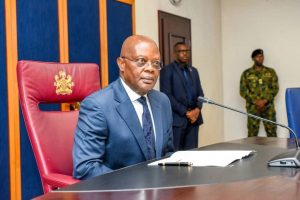Asia must not become arena for ‘big power contest,’ says China’s Xi as APEC summit gets underway | CNN

Bangkok, Thailand
CNN
—
Chinese leader Xi Jinping has stressed the need to reject confrontation in Asia, warning against the risk of cold war tensions, as leaders gather for the last of three world summits hosted in the region this month.
The Chinese leader has already used the Asia-Pacific Economic Cooperation (APEC) to stake out how he wants China to viewed by his counterparts – framing the country as an agent of regional unity in a written speech released ahead of Friday’s opening day.
Without specifically naming the United States, the speech also appeared to make several jabs at the US.
The Asia-Pacific region is “no one’s backyard” and should not become “an arena for big power contest,” Xi said in the statement, in which he also warned against attempts to “disrupt” or “dismantle” industrial supply chains.
“Unilateralism and protectionism should be rejected by all; any attempt to politicize and weaponize economic and trade relations should also be rejected by all,” said Xi in the speech, copies of which were provided to the media by the Chinese delegation.
“No attempt to wage a new cold war will ever be allowed by the people or by our times,” he added.
Xi was originally due to deliver the remarks at a business forum on the sidelines of the summit but canceled the appearance due to unforeseen scheduling conflicts, Reuters reported, citing forum organizers.
APEC’s big issues
Relations between the world’s two largest economies have deteriorated sharply in recent years, with the two sides clashing over Taiwan, the war in Ukraine, North Korea, and the transfer of technology among other issues.
But US-China tensions, which relaxed slightly following a landmark meeting between Xi and US President Joe Biden in Bali, Indonesia earlier this week, will not be the only shadow hanging over the APEC summit.
Leaders and representatives from 21 economies on both sides of the Pacific – accounting for around half of global trade – are expected to grapple with how to address the economic fallout of the war in Ukraine over the course of their two-day summit, an annual gathering meant to advance regional economic integration.
Xi sat down with Japanese Prime Minister Fumio Kishida Thursday, in the first meeting between leaders of the two countries in nearly three years. Both sides called for more cooperation following a breakdown in communication over points of contention from Taiwan to disputed islands.
He also met with Singaporean Prime Minister Lee Hsien Loong and Philippine President Ferdinand Marcos – in a bid to underline the importance of regional relationships for Xi, who held a packed line-up of bilateral meetings during what is only his second trip overseas since the start of the pandemic and his first since taking a norm-breaking third term as China’s leader.
Unlike at the G20 earlier this week, Xi is not entering APEC having to sit across the table from Biden, who left Asia on Wednesday for a family event and handed American representation in Bangkok to Vice President Kamala Harris.
Russian President Vladimir Putin will also not be in attendance, instead sending a representative, having already skipped the G20 and meetings around the Association of Southeast Asian Nations (ASEAN) summit in Phnom Penh, Cambodia over the past week.
How APEC economies should handle this US-China fissure within their own bloc and its consequences is likely to dominate discussion among the group, which also includes countries from Vietnam to Peru, South Korea to New Zealand and Mexico.
Whether leaders can reach a consensus and issue a joint statement by the summit’s close Saturday is likely to hang on those issues.
When asked about the potential for consensus in the upcoming leaders’ summit, following a meeting of APEC foreign ministers on Thursday, US Secretary of State Antony Blinken was optimistic.
“Far from splitting along one line or another, I think we see increasing convergence among all of the countries on the critical issues that actually matter in the lives of our citizens … I think you’ll see coming out of Bangkok in the next 24 hours or so, important steps forward that we’re taking together,” he said.
CNN’s Wayne Chang and Reuters contributed reporting.





